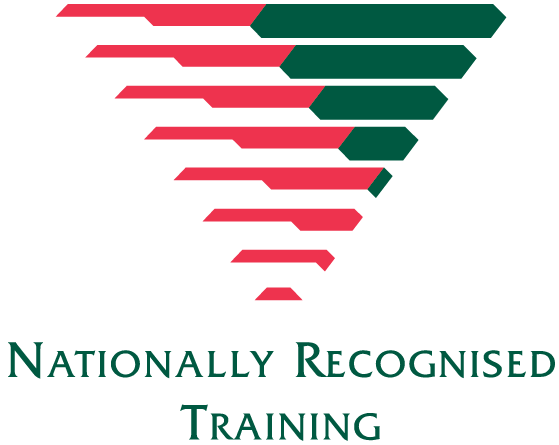Qualification Description
This qualification reflects the role of entry level workers who provide services and interventions to clients with alcohol and other drugs issues and/or implement health promotion and community interventions. Work in undertaken in contexts such as community-based organisations, withdrawal services, residential rehabilitation services and outreach services under the guidance of other practitioners and professionals, with limited responsibility and within established parameters.
No licensing, legislative, regulatory or certification requirements apply to this qualification at the time of publication
Who is the course suitable for ?
The CHC43215 Certificate IV in Alcohol and Other Drug is ideal for individuals interested in working in the field of alcohol and other drug (AOD) support services. This qualification is designed for those who want to develop the skills and knowledge necessary to work with individuals affected by substance use and addiction. It is particularly suitable for roles in counselling, case management, support coordination, and outreach services in a variety of settings, such as rehabilitation centers, hospitals, community organisations, and government services.
Course Duration
- 12 Months
All students are to engage in at least 10 hours of supported self-paced learning each week during the course. Supported self-paced learning is to be undertaken by the students outside of the scheduled hours according to the student’s individual learning needs. However, to support the students AGAE will provide a self-study guide that links to self-paced learning activities to these scheduled timetables.
Mode of delivery
- Face to Face and / or Live Zoom Sessions
Training Location
- Victoria: GO2/1510 Pascoe Vale Road, Coolaroo Vic 3048
- South Australia: 225 South Rd, Mile End SA 5031
Course Structure
To be awarded the nationally accredited certificate the CHC43215 Certificate IV in Alcohol and Other Drugs, a student must successfully complete a total of 17 units comprising of 12 core units and 5 elective units.
| Unit Code | Unit Name | Core / Elective |
|---|---|---|
| CHCAOD001 | Work in an alcohol and other drugs context | Core |
| CHCAOD004 | Assess needs of clients with alcohol and other drugs issues | Core |
| CHCAOD006 | Provide interventions for people with alcohol and other drugs issues | Core |
| CHCAOD009 | Develop and review individual alcohol and other drugs treatment plans | Core |
| CHCCCS004 | Assess co-existing needs | Core |
| CHCCCS014 | Provide brief interventions | Core |
| CHCCOM002 | Use communication to build relationships | Core |
| CHCDIV001 | Work with diverse people | Core |
| CHCLEG001 | Work legally and ethically | Core |
| CHCMHS001 | Work with people with mental health issues | Core |
| CHCPRP001 | Develop and maintain networks and collaborative partnerships | Core |
| HLTAID011 | Provide First Aid | Core |
| CHCADV001 | Facilitate the interests and rights of clients | Elective |
| CHCCCS038 | Facilitate the empowerment of people receiving support | Elective |
| CHCAOD002 | Work with clients who are intoxicated | Elective |
| CHCAOD003 | Provide needle and syringe services | Elective |
| CHCAOD005 | Provide alcohol and other drugs withdrawal services | Elective |
What resources are used to deliver the training ?
Student Handbook
A comprehensive Student Handbook will be provided to each student. This document outlines the course structure, objectives, key concepts, and guidelines, serving as a reference throughout the program. It also includes essential information on safety protocols and best practices. The handbook contains:
- Key learning points and summaries for each unit
- Theoretical readings and additional resources to deepen understanding
This resource ensures students are well-equipped to navigate the course and apply their knowledge effectively.
Textbook
The Textbook for students studying the Certificate IV in Alcohol and Other Drugs provides essential information to help them navigate through the course content, practical tasks, and assessments. Students are required to purchase their own textbooks at their own expense. For detailed information on the required textbooks, purchasing process, and related details, please inquire during the enrolment process.
Presentation Slides
Presentation slides are used by the trainer during the course delivery to visually support key concepts and discussions. These slides summarize the main points from the Textbook, helping students follow along and engage with the material. They may include:
- Diagrams and charts
- Example scenarios and case studies for group discussion
Practical Equipment & Tools
During practical sessions, students will typically use a variety of practical equipment and tools to perform their duties effectively. While this qualification focuses on skills, knowledge, and competencies related to client support and intervention strategies, some of the tools and resources used for hands-on learning and practice might include:
- Communication Tools: Resources such as telephones, conferencing software such as Zoom, Microsoft Teams, and messaging platforms to simulate communication with clients, team members, and external resources.
- Policy and Procedures: Reference materials that provide students with evidence-based practices, ethical considerations, and intervention strategies.
- Counselling Aids: Materials like reflective journals, thought-provoking prompts, and coping mechanisms aids used to assist clients during therapeutic or support sessions.
- Group Work Resources: Collaborative tools such as whiteboards, sticky notes, or online collaborative platforms used for brainstorming and developing intervention plans as part of group exercises.
- Simulated Environments: Practical spaces or virtual simulations that mimic real-world settings where clients might be helped, such as role-playing rooms or online simulations.
- Cultural Sensitivity and Diversity Resources: Materials to ensure students are aware of and sensitive to cultural differences, diversities, and potential challenges that clients from different backgrounds might face.
- Feedback Mechanisms: Tools for receiving and giving feedback to enhance learning, such as peer reviews, observation checklists, and reflective practice tools.
These resources are designed to enhance the practical experience for students and provide them with a comprehensive set of skills and knowledge for effective client support and intervention.
Risk Assessment Templates
Students will be provided with templates to conduct risk assessments. These templates guide students in systematically evaluating hazards, assessing risks, and developing control measures for a variety of work-related situations. They are an essential resource for both individual and group activities, ensuring a structured approach to safety and risk management.
Assessment Tools
Assessment tools will include:
- Case Studies: To evaluate a student’s ability to apply theoretical knowledge in real-life scenarios.
- Role-Playing Scenarios: To simulate real-world interactions with clients or colleagues, allowing students to demonstrate their interpersonal and communication skills.
- Knowledge Questions: To assess a student’s understanding of key concepts related to alcohol and drug misuse, legal and ethical requirements, and intervention strategies.
- Workplace Projects and Simulations: To assess how students would manage specific tasks in a real-world setting.
- Client Care Plans and Intervention Strategies: To evaluate a student’s ability to develop effective care plans and intervention strategies for clients.
- Written Reports and Documentation: To assess the student’s ability to maintain accurate and professional documentation.
- Group Work and Presentations: To assess teamwork, communication, and collaborative problem-solving skills.
- Portfolios: To collect and organize proof of the student’s competence throughout the course.
Assessment Arrangements
- Assessments are designed to allow the students to exhibit competencies in the unit(s) of competency.
- Assessment’s methods can include practical tasks, project, written responses, role play, supervisors report, case studies, etc.
- Information about assessment requirements will give out in the first class and explained clearly by the trainer/assessor.
- Students are not graded but deemed “Competent” or “Not Yet Competent”.
- Students can appeal an assessment outcome.
Student Support
AGAE offers a range of support services to meet everyone’s needs. Please contact AGAE directly for assistance with your requirements.
What can I do once I have completed my qualification ?
Upon successful completion of this qualification, CHC43215 Certificate IV in Alcohol and Other Drugs, students will be equipped with essential skills to work directly with individuals experiencing alcohol and drug-related issues, providing individualised support to help them manage and reduce the impact of substance use on their lives. Graduated students can conduct assessments, create treatment plans, and deliver case management services tailored to the needs of clients affected by substance use.
The qualification will equip students with a strong understanding of ethical guidelines and legal requirements relevant to working in the alcohol and other drugs sector, ensuring compliance with privacy, confidentiality, and duty-of-care principles. The students will be confident in collaborating effectively with other health professionals, such as social workers, counselors, and healthcare providers, in providing holistic and integrated care to clients.
Graduates of the CHC43215 Certificate IV in Alcohol and Other Drugs will be prepared to take on key roles in providing client-centered support, managing cases, implementing interventions, and contributing to the overall well-being and recovery of individuals affected by substance use. They will also be equipped to work in a variety of settings such as rehabilitation centers, community support services, hospitals, and outreach programs.
Career Pathways
By completing the qualification, CHC43215 Certificate IV in Alcohol and Other Drug, students will be well-prepared to take on roles such as:
- Alcohol and Drug Support Worker
- Case Worker
- Drug and Alcohol Counsellor
- Residential Support Worker
- Community Outreach Worker
- Youth Support Worker (specialising in substance misuse)
- Rehabilitation Assistant
- Crisis Intervention Worker
- Harm Reduction Worker
- Family Support Worker (specialising in substance use issues)
In these roles, graduates will play a critical part in helping individuals and communities manage substance use issues, improve health outcomes, and support long-term recovery and well-being.
Education Pathways
Depending on your long-term career and study goals, upon completion of CHC43215 Certificate IV in Alcohol and Other Drug, you may wish to progress completing:
- CHC52021 Diploma of Community Services
- CHC53315 Diploma of Mental Health
- CHC50221 Diploma of School Age Education and Care
- BSB50420 Diploma of Leadership and Management
AGAE does NOT guarantee any:
- Licensing outcome
- Employment outcome
- Successful completion of this course
Are there any prerequisites or entry requirements ?
There is no entry requirement for this qualification.
The RTO has the following admission requirements:
- Students must be 18 years of age.
- Students must undertake Language, Literacy and Numeracy test prior to enrolment. To gain entry into this course, student must have been determined as having the appropriate LLN capability.
- This program has been designed to be delivered through classroom-based delivery and students must have the ability to attend the scheduled sessions as per the timetable and must have access to a computer and the internet to complete self-study work. Students are to be informed of the timetable on enrolment and must maintain the required student contact hours.
- Applicants need to have the mental, emotional, and physical capability and willingness to work with children for extended hours on a daily basis.
- Applicants must identify any issues including mental, emotional, and physical issues of relevance to this occupation and training at the time of registration.
South Australia:
All candidates who are seeking to access to training are required to participate in the Upfront Assessment of Need process.
For more details about the UAN assessment visit https://providers.skills.sa.gov.au/Deliver/Upfront-Assessment-of-Need
- Individuals who are unwilling to participate fully in all aspects of the UAN process may instead choose to undertake training through fee for service arrangements.
- Suitability to ensure there is a good fit between the individual and the qualification of choice support requirements to ensure early identification and planning for individual learning, personal or complex needs.
- Literacy and numeracy to ensure wherever possible the individual can, if otherwise suitable, undertake a vocational qualification with additional foundation skills training OR to provide a clear evidence base of need for accessing a foundation skills qualification.
The requirement to provide a Unique Student identifier (USI)
All students are required to obtain a Unique Identifier (USI) prior to enrolment or provide evidence if exemption from obtaining a USI. A student can obtain a USI by visiting the following website to create a USI number:
If a student has already previously obtained a USI number but does not know it, they can go to the website to obtain their USI:
Student can also sign a USI consent form to allow AGAE to search or create a USI number on their behalf. AGAE will not issue an AQF qualification if the student fails to adhere to this requirement.
Skills Recognition
Under the Australian Qualification Framework (AQF), AGAE accepts and provides Credit and Recognition of Prior Learning (RPL) to learners for units of competency and/or modules (unless licensing or regulatory requirements prevent this) where these are evidenced by:
- AQF certification documentation issued by any other RTO or AQF authorised issuing organisation, or
- Authenticated VET transcripts issued by the Registrar
Obtaining your certificate or Statement of Attainment after successfully completing your course
- AGAE will issue a certificate within 30 calendar days of successful completion of the course, provided all requirements are met, fees are fully paid, and the USI (Unique Student Identifier) has been supplied.
- For students who partially complete the course successfully, a Statement of Attainment will be issued, provided all fees are fully paid and the USI has been supplied.
Fees:
South Australia Funded Student:
$661.50 ‘Participant Eligibility Criteria apply’ for to be eligible for South Australia Funded Student fees. *Supported by the Skills SA
You can check your eligibility at:
- Must be 18 years and above and not enrolled at school
- An Australian or New Zealand Citizen (Funded and Non-Funded Course) or
- A permanent Australian Resident or
- An eligible visa holder (Funded and Non-Funded Course) for more details on eligibility for funding courses visit:
https://providers.skills.sa.gov.au/Deliver/Student-eligibility-for-subsidised-training
Other States:
The cost for the full course for non-funded students is $2,900. This includes all tuition materials, administration fees, and training materials to complete the course. Students will be required to pay a deposit of $500 at the time of enrolment. Students/candidates can then either pay the balance in full upon commencement of the course or use the payment plan option available, which consists of five monthly instalments of $480.
AGAE does not take more than $1,500 as part of monthly instalment at any one time.
Cooling off period
Our refund policy is included in the agreement that you are required to sign to indicate acceptance of the offer of enrolment and all the terms and conditions specified. All self-funded course fees include a non-refundable deposit as outlined on the Course Outline and Student Agreement, which must be paid to secure a student’s place in the course.
The deposit is non-refundable except in the instance where AGAE is required to cancel a course due to insufficient numbers or for other unforeseen circumstances.
Students who withdraw from a course and wish to seek a refund or have the amount they owe on their fees reduced must apply to AGAE in writing, outlining the details and reason for their request.
Students who have not completed a withdrawal form are not eligible for consideration of a refund or reduction in fees. Eligibility for a refund will be assessed based on the services provided to the student and the costs incurred by AGAE in order to provide those services to the student. The outcome of the refund assessment will be provided by written notice to the student’s registered address outlining the decision and reasons for the decision along with any applicable refund or adjustment notice.
AGAE adheres to the cooling-off period as specified according to Australian Consumer Law. Further details can be accessed in the AGAE’s Student Handbook which is available on our website: https://www.agaeducation.com.au/
How To Enrol
To enrol in this course, please complete the Enrolment Form available on the website and email it to: admin@agaeducation.com.au
Or you can call us on:
- SA: (08) 7480 3318 / 0451 600 626
- All other states: (03) 8313 3249 / 0451 600 626
We will contact you to discuss your needs prior to finalising your enrolment.
Please ensure you read our Student Handbook along with this Course Outline.




